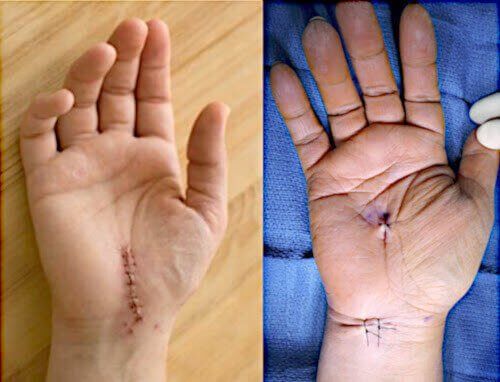Checklist: Carpal Tunnel Surgery Preparation
From Dr. Z - Carpal tunnel syndrome specialist
Carpal Tunnel Surgery Preparation
Carpal tunnel surgery preparation begins many days before the actual operation. Preparing isn’t difficult but it involves a number of steps.
So if you give preparation careful attention, your carpal tunnel recovery time will be much easier and more comfortable. More importantly, you’ll greatly improve the probability of a successful outcome.
Remember: surgery is a life-altering choice. It can be a turning point for managing the pain, numbness, tingling or weakness of carpal tunnel syndrome. There’s no guarantee you'll get the results you want or expect. But let’s think positive and hope for wonderful results!
- FIND OUT: do you have carpal tunnel? No strings attached self-test.
Provide all information before surgery
Pre-operative tests and measures
Carpal tunnel surgery preparation is no different than any other operation. As such, your body is tested for many things before the procedure. You normally take these tests within 30 day of having the operation. You’ll likely need to have:
- EKG
- Chest & arm X-rays
- Blood & urine tests
The surgeon may ask for additional tests based upon your particular health status. The surgeon will also tell you which regular medicines to stop taking (and when) before the operation.
Ask if you can take regular medicines on the evening before the surgery or the following morning. However, the night before surgery, you may not eat or drink (except water). In fact, it’s common for doctors to cancel a surgery because the patient ate or drank within a few hours of the procedure. The risk of choking on stomach contents while under anesthesia is simply too great to continue.
Pre-operative precautions
Aside from not eating or drinking before the surgery, the surgeon may advise you to stop smoking a few days before the surgery. (So why not quit completely – it’s a good time!) This has nothing to do with the operation, but it will help you heal much faster.
It's well known that smoking delays the healing process. Therefore, the doctor may even encourage you to stop smoking altogether.
Finally, arrange for a way to get home. You won’t be able to drive for a couple weeks because you’ll not have significant grip strength in your hand. That makes steering dangerous, if not impossible. Therefore, arrange for family, friends or even a taxi to be at the surgical center around the time of discharge.
You will not be discharged unless you have somebody to bring you home.
Ask questions about your carpal tunnel surgery preparation
Make a list of any questions you have about carpal tunnel surgery and recovery time. Bring them to appointments and ensure all of them have good answers. Your comfort is paramount, and nagging questions will only make you more nervous.
Also, don’t be shy about asking whatever is on your mind. There are no dumb questions, especially when it comes to your body and your health.
Below are common questions patients should ask their doctor.
Common questions about carpal tunnel surgery
- Will I have endoscopic or open carpal tunnel surgery? (The difference between the two greatly affects your level of post surgical pain and recovery time.)
- How much pain will there be afterwards?
- Can you estimate how long the post-surgical pain will last?
- How should I take the pain medications?
- At what point do I restart taking my usual medications?
- Will I get home instructions?
- How long will I need help around the house?
- Which specific restrictions will I have after the operation?
- Can I return to my former job? And when?
- On which day will my stitches come out?
- When will my bandages come off?
- When can I return to my other hobbies and activities?
- If my pain is too severe, what then?
- Do you have a plan for rehabilitation of my hand?
- In how many days will you follow-up with me?
- What happens if the surgery did nothing for my symptoms?
For more information
- Here’s the best list of carpal tunnel surgery doctor questions to ask.
- Be aware that carpal tunnel surgery is unnecessary 97% of the time .
- The Johns Hopkins Hospital says the better you prepare, the faster you’ll regain your hand function.
- Learn about the Postoperative Follow-Up for Extreme Carpal Tunnel Syndrome.





